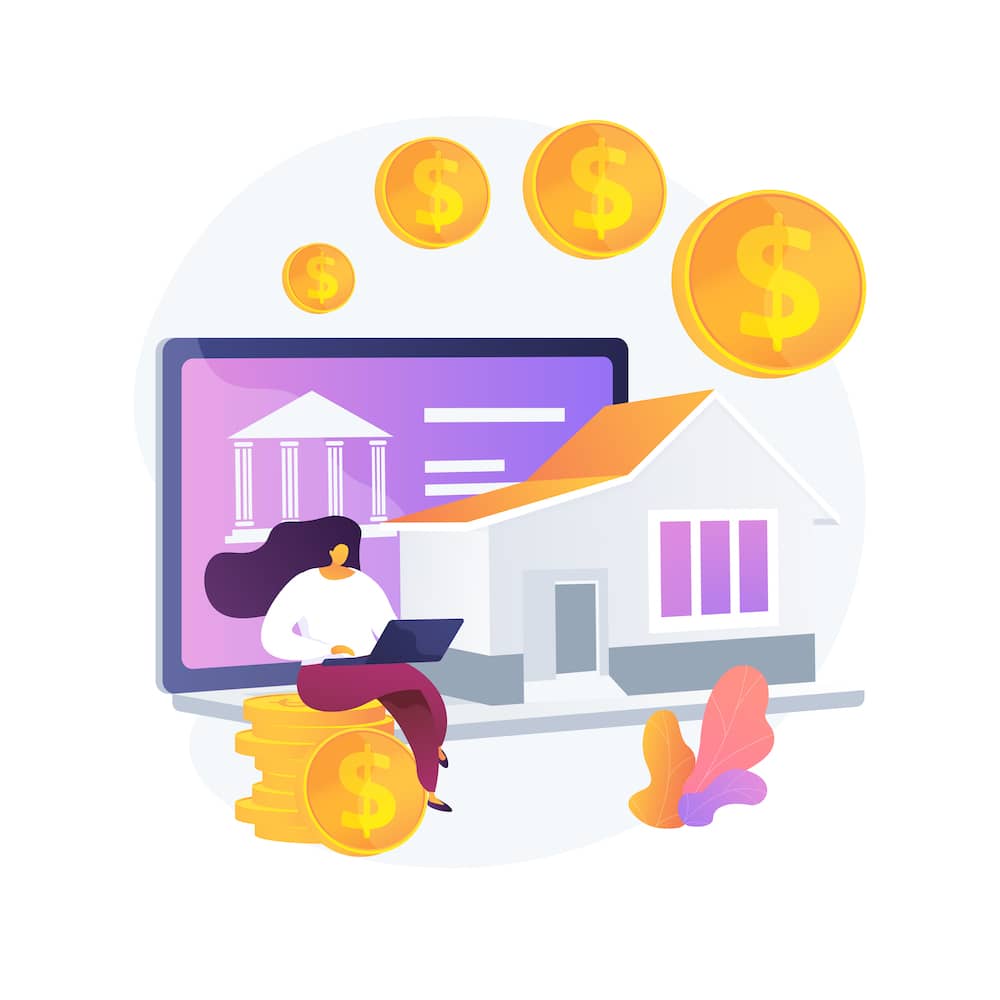Do you need a loan to finance a short-term project? The only problem is, your credit score is poor. You may already feel like nobody would trust you with their money. While your fear is valid, having poor credit doesn't mean you can't get a loan.
While bad credit has multiple limitations, it isn't the end of the world. You can still apply for poor credit loans and gradually rebuild your credit score for better loan offers. Here are seven ways to overcome bad credit and get your next loan.
Look to friends and family
Try a credit union or online loan option
Find a co-signer
Look at peer to peer loan options
Review your credit report for any inaccuracies
Offer collateral for a loan
Improve your credit score
Look To Friends and Family
When push comes to shove, you may have to ask your friends and family if they have some extra cash to spare. Although your friends may not care about your bad credit score or bother about credit checks, borrowing money from them should be the last resort, and you should do all you can to keep to your end of the agreement.
Just like borrowing from other financial service providers, you need to agree on the repayment terms and conditions when asking for a loan from your friend. Signing a loan agreement at the beginning is the best way to prevent things from going south along the way.
It will help if you also had a backup repayment plan if things don't go as expected. If the project you planned to fund the repayment with falls through, you need a plan B or plan C to save the day. For instance, you can offer to pay late fees anytime you make a late payment.

Try a Credit Union or Online Loan Options
You can apply for a credit union loan when you have a bad credit history. Because credit unions are non-profits, they have flexible lending terms and offer lower interest rates than banks and other financial institutions.
There are many credit unions you can join in Canada to get a personal loan with bad credit. As long as you fulfill all the requirements, you can fill the online application and receive a quick loan decision. The money may even be disbursed to your bank account within a few minutes.
Find a Co-Signer
Getting a co-signer on a personal loan application can convince the lender to approve it. Your co-signer can be anyone—a friend, colleague, or a family member. The most important thing is this person has good credit and consistent income.
A co-signer improves your creditworthiness and makes it easier for the lender to trust you with their money.
Since you have bad credit, the co-signer's solid credit history serves as a lender guarantee.
Co-signing a loan is a huge responsibility and a big decision; it's exactly like taking a loan for yourself. First, the co-signer is legally responsible for paying off the loan plus interest if the primary borrower defaults on the repayment plan. But that's not all; missed payments can ruin your credit score, and you may find yourself in the same situation as the primary borrower.
On the flip side, if the primary borrower keeps to his or her end of the bargain and pays the loan back on time, it can boost your credit score and help you diversify your accounts.
Look at Peer to Peer Loan Options
If you need a more flexible alternative for securing a loan with bad credit, you should consider peer-to-peer loan options.
Peer-to-peer lending means you'll borrow the money from an investor directly instead of a bank. An online lending platform facilitates the entire application process and transaction between the borrower and the investor.
At the end of the loan repayment period, the investor earns more interest on the money while the borrower enjoys a cheaper loan which is good news for your bad credit. Since you're paying back a lesser loan amount, either as a lump sum or in installments, you can make on-time repayments and boost your credit score.
Many of the risks involved in peer-to-peer lending affect the investor. For example, the borrower can fail to pay back the loan, or the online lending platform can fold up without warning. In most cases, however, a peer to peer lending ends pretty well for everyone.
Review Your Credit Report for Any Inaccuracies
You may not even have bad credit at all; the problem can be your credit report. Data shows that one in every five people has an error or two ruining their credit records. Now that you know this makes sure you go through your credit report carefully anytime you get the free copy from the reporting companies.
So what kind of errors should you be looking out for?
Personal information errors like incorrect accounts, wrong name, and contact information, incorrectly reported as the owner of an account, and name mixups.
Wrong account reporting statuses like multiple debits and incorrect payment information
Balance errors like reporting a wrong account balance
Data management errors.
If you find any of these errors in your credit profile, contact the reporting company or information furnisher immediately. Attach a copy of the error page and any other supporting documents as evidence.
Offer Collateral for a Loan
Some lenders will give you a loan with bad credit if you have collateral. Also known as a secured loan, a collateral loan is a type of borrowing that requires one of your assets as a repayment guarantee.
The collateral protects the lender from any financial losses that may happen if you cannot pay back the loan at the right time. You can use your car, house, or even stocks as loan securities.
Unlike unsecured personal loans, collateral loans have lower interest rates. This means you'll repay a lower amount of money at the end of the day. It can also improve your credit score, especially when you do not default on the repayment plan. Depending on the collateral value, you may be able to borrow more money while you are still paying off the existing loan.
Improve Your Credit Score
Ultimately, you need to work towards improving your credit score so you can access better loan offers. In this section, we'll discuss four practical ways to boost your bad credit score.
Dispute credit errors
Pay off past balances
Leave accounts open
Contact your creditors
Dispute Credit Errors
If you see something off in your credit report, contact the credit bureau for clarifications immediately. You wouldn't be out of line as the Fair Credit Reporting Act allows you to dispute any credit record errors. Once you file a report, they will take it up and provide feedback within 30 days.
Credit report errors range from wrong biodata, identity theft, and inaccurate payment records. No matter what it is, you have the right to question any information in the report that doesn't sit well with you.

Pay off Past Balances
If you have any outstanding payments, it's time to offset them. Your payment history determines 35% of your credit score, so if you want better credit, you need to clear those debts as soon as possible.
Now is also an excellent time to take a long, hard look at your expenses—do you have to spend that much every month, or are there ways to cut down your costs? You can start by drawing up a budget for your monthly income and then planning for emergency funds instead of getting multiple urgent loans to make ends meet.
Leave Accounts Open
Consider leaving your credit card accounts open to build your credit history, even if you don't have any money in them. Your credit history determines 15% of your credit rating, so the older your accounts, the better your credit.
Contact Your Creditors
If you know you can't meet up with the loan's monthly payment plan, the first person you should contact about the situation is your creditor.
Reaching out to your creditors when you need help is a wise step to take. You should have a sincere conversation with them and possibly arrive at a more flexible repayment plan that wouldn't hurt your credit score too much.
Summary
There's no easy fix for bad credit; you need to put in the work and wait for results patiently. While you may not qualify for the bank loans at this time, you can apply for a personal loan with low credit scores with private lenders like iCash.












